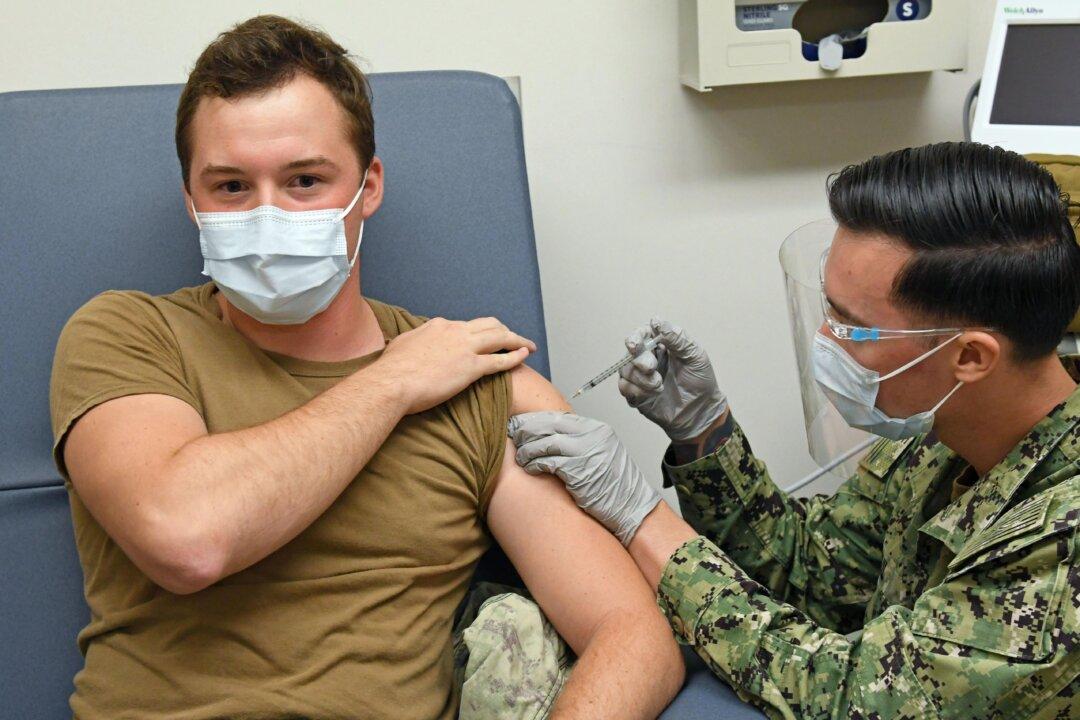The U.S. Department of Defense may provide back pay to former service members who were removed for not receiving the COVID-19 vaccine, coming after the Pentagon repealed the mandate, a spokesperson confirmed Friday.
A Pentagon spokesperson, Maj. Charlie Dietz, told The Epoch Times, in response to reports from Politico and others, that regarding back pay, the “Department is still exploring this and will provide its views on legislation of this nature at the appropriate time and through the appropriate process.” Dietz did not provide a timetable for when back pay might be considered.





